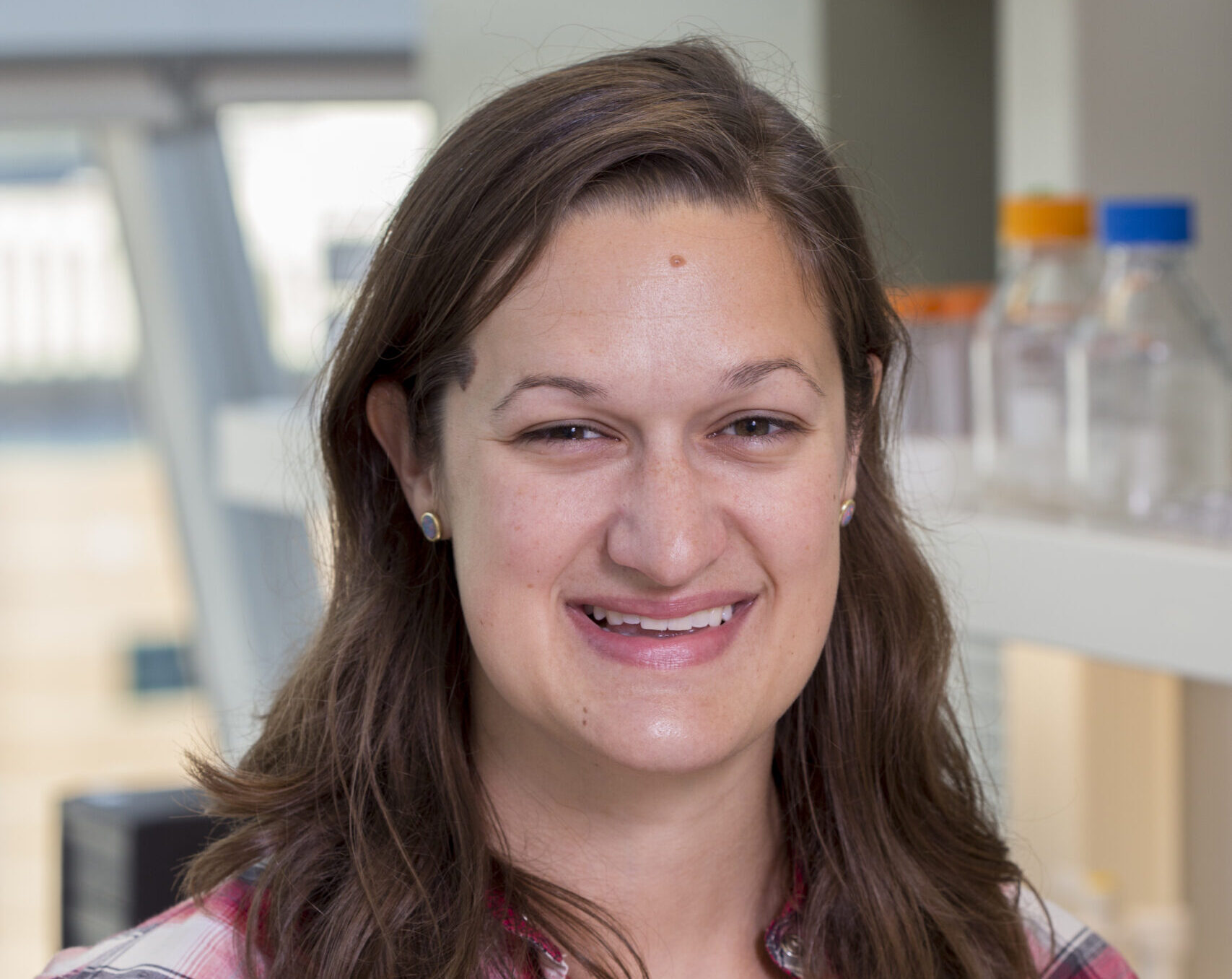Revealing the root causes of colon cancer: Three questions for Dr. Ali Lanctot Chomiak
September 13, 2018

Although the overall prevalence of colon cancer has steadily dropped since the 1980s, a close look at the data from recent years reveals a disturbing trend — despite the broader decrease, colon cancer cases are climbing at an alarming rate in younger people.
Regular screening for the disease usually begins at age 50, which helps doctors catch cancers before they take hold and spread. Since people younger than 50 typically do not undergo annual screening, colon cancers may not be caught until much later, making treatment much more difficult.
Although scientists know a lot about the factors that cause cancer, there are some important gaps in knowledge that, once revealed, could lead to the development of new, improved therapies.
Dr. Ali Lanctot Chomiak, a postdoctoral fellow here in the lab of Dr. Scott Rothbart, is working to get to the root of this problem by studying the molecular changes that give rise to colon cancer. To do so, she’s focusing on an epigenetic process called DNA methylation, an ensemble of small tags on DNA that tell our genes when they should be expressed and to what extent.
To understand methylation, it’s helpful to think about what you’re doing right now — reading.
We read by recognizing certain patterns and groups of letters (aka words) on a page and assigning them meaning. In much the same way, certain methylation patterns on our DNA help the body read and identify when the instructions in a certain gene should be acted upon and when they should not. In many diseases, including cancer, these patterns get scrambled, causing certain genes to become active or inactive at the wrong time. In cancer, this could mean a gene responsible for promoting cell division doesn’t get turned off when it should, allowing too many cells to grow and invade other tissues.
To support her work, the National Cancer Institute recently awarded Lanctot Chomiak a Ruth L. Kirschstein National Research Service Award, a prestigious grant developed to support the training of the country’s most talented pre- and postdoctoral scientists. We caught up with her to talk about her research and how support from federal funding propels innovative scientific inquiry.
Q: Tell us about your research. What will this award support?
ALC: We know that DNA methylation patterns often are irregular in cancer; this is particularly true in colon cancer. At the same time, existing medications that target methylation to treat cancer are not always effective or they have side effects. I want to figure out how and why these methylation patterns change and how they give rise to malignant cells, with the goal of developing improved treatments.
Specifically, I study a protein called UHRF1, which helps maintain methylation patterns on the DNA. UHRF1 also is overly abundant in cancers and, again, even more so in colon cancers. I’m investigating how and why UHRF1 is overexpressed and trying to figure out if targeting and reducing levels of UHRF1 may be an effective way to fight cancer.
I’m really excited about this project. It’s a great opportunity to uncover new insights into the molecular drivers of colon cancer and has the potential to inform the development of new epigenetic cancer treatments.
Q: You’re using some pretty cool techniques in the lab. Can you fill us in?
ALC: For my experiments, I am modeling colon cancer with intestinal organoids, which are an exciting new technology that helps us study organ development and cancer. These organoids, or “mini-guts,” are kind of like bonsai trees — they have many of the same features as a real, full-size intestine but are about the diameter of a human hair.
They’re a great model because they are relatively easy to manipulate and they mimic gut structure and organization more closely than traditional cancer cell lines used in the lab. For example, we can grow normal organoids from cells taken from a healthy intestine or we can grow cancerous organoids by using samples from tumors or polyps. We can also cause cells in our healthy organoids to turn cancerous, modeling in the lab what happens inside the body.
Q: How does this grant help your work?
ALC: Funding from the National Cancer Institute provides me with critical support at a key time during my development as an independent scientist.
On a personal level, this award gives me confidence knowing that the excitement I have for my ideas is shared among my peers. A lot of careful literature review and focused project design goes into writing and getting a grant, and the peer-review process helps validate my study goals and plan. The simple fact that it was funded means other scientists believe both the project and me are worth supporting and that the study is a valuable use of resources and time. It’s very gratifying.
Learn more about Dr. Lanctot Chomiak here and about the Rothbart Laboratory here.
Research reported in this post was supported by the National Cancer Institute of the National Institutes of Health under award number 1F32CA225043-01A1. The content is solely the responsibility of the authors and does not necessarily represent the official views of the National Institutes of Health.
